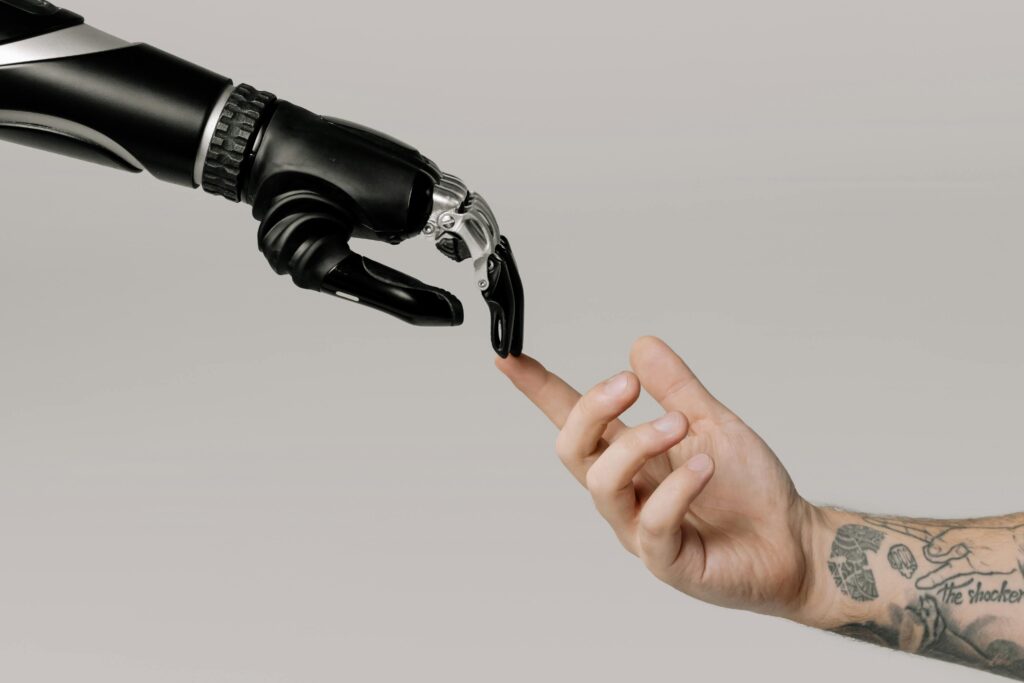Is artificial intelligence replacing human intelligence?
Will artificial intelligence change the role of humans in a few years?
With rapid refinement of skills relevant to future jobs and responsibilities, human society is increasingly using intelligent computers more. Although artificial intelligence has been proven to have extraordinary abilities in many areas, the question of whether it can replace humanity remains valid. The short answer is No. Let’s know why.
Table of Contents
What is Artificial Intelligence?
Simply put, intelligence provided by machines is often referred to as artificial intelligence (AI). Or simply put, the ability of a device or computer to simulate human thought is called intelligence.
Artificial intelligence is more than a buzzword; It is a fascinating field that sparks the imagination of scientists, researchers and dreamers. Imagine a world where machines can think, learn, and solve complex problems like humans. Artificial intelligence thinks it can do this, but it is unlikely that it will think like humans in the coming years.
The basis of artificial intelligence is to create intelligent machines that can imitate human intelligence. This is like teaching a computer to have its own brain, the ability to know, think, and make decisions based on data and patterns.
There is no doubt that artificial intelligence can complete some household tasks faster and better than humans. But can it change people? Let’s find out.
What is Human Intelligence?
The origins of human intelligence and behavior can be traced to an individual’s unique combination of genetics, upbringing, and exposure to various situations. It depends on the individual’s freedom to create his own environment using newly acquired knowledge.
The information it provides is diverse. For example, it can provide information about people with similar abilities or backgrounds, or reveal information that a recruiter or spy might have. Once all is said and done, a message of personal connection and satisfaction can be conveyed.
Artificial Intelligence vs Human Intelligence
Humans are responsible for designing and coding algorithms that enable computers to solve complex problems and learn from their environment, leading to greater intelligence.
But when it comes to multitasking, relationships, and self-awareness, human intelligence is more than just intelligence. AI has no IQ, it follows instructions from humans for specific tasks.
Artificial intelligence and human intelligence are often used interchangeably, but they are different. Although artificial intelligence includes technologies that allow computers to perform cognitive processes such as learning and problem solving, human intelligence is one of mental processes such as creativity, imagination and memory.
Although it is not currently possible to create artificial intelligence with human intelligence, research shows how each algorithm can be combined to create algorithms similar to users.
Despite this difference, it may well be that intelligence is applied to reality, but its abilities can only follow human intelligence. However, unlike humans, artificial intelligence does not feel tired or stressed, thus reducing the number of errors in work. Simply put, human intelligence uses its brain, memory and intelligence, while artificial intelligence uses information from humans.
Conclusion
The war between humans and technology continues, killing our imagination and causing conflict. Who or what deserves the crown of superiority? The way to survive is the clash of intelligence, wisdom and skill. People are grateful for His superior wisdom. Our minds are treasure troves of creativity, innovation and imagination. We have unlimited power to imagine, imagine and create the art, literature and inventions that shape the world. Our emotional intelligence allows us to understand, connect, and deeply understand each other. It is the essence of our humanity that makes us different. But look, the rise of technology and the lack of power causes us to control people. Well, most people think so! But all else aside, technology fascinates us with its speed and lack of precision. It can count, analyze and process staggering amounts of information in the blink of an eye. Advanced machine learning algorithms allow them to predict, automate and optimize tasks with infinite efficiency. But in this ideal competition, the question arises: Can technology overcome human contact? Can artificial intelligence guide us and renew the depth of our emotions, the nuances of our relationships, the magnitude of our emotions? While machines can imitate, repeat and work perfectly, they do not have the willpower and emotional intelligence of humans. Artificial intelligence can help people complete repetitive and time-consuming tasks. So can artificial intelligence replace humans? The answer is simple, NO!

